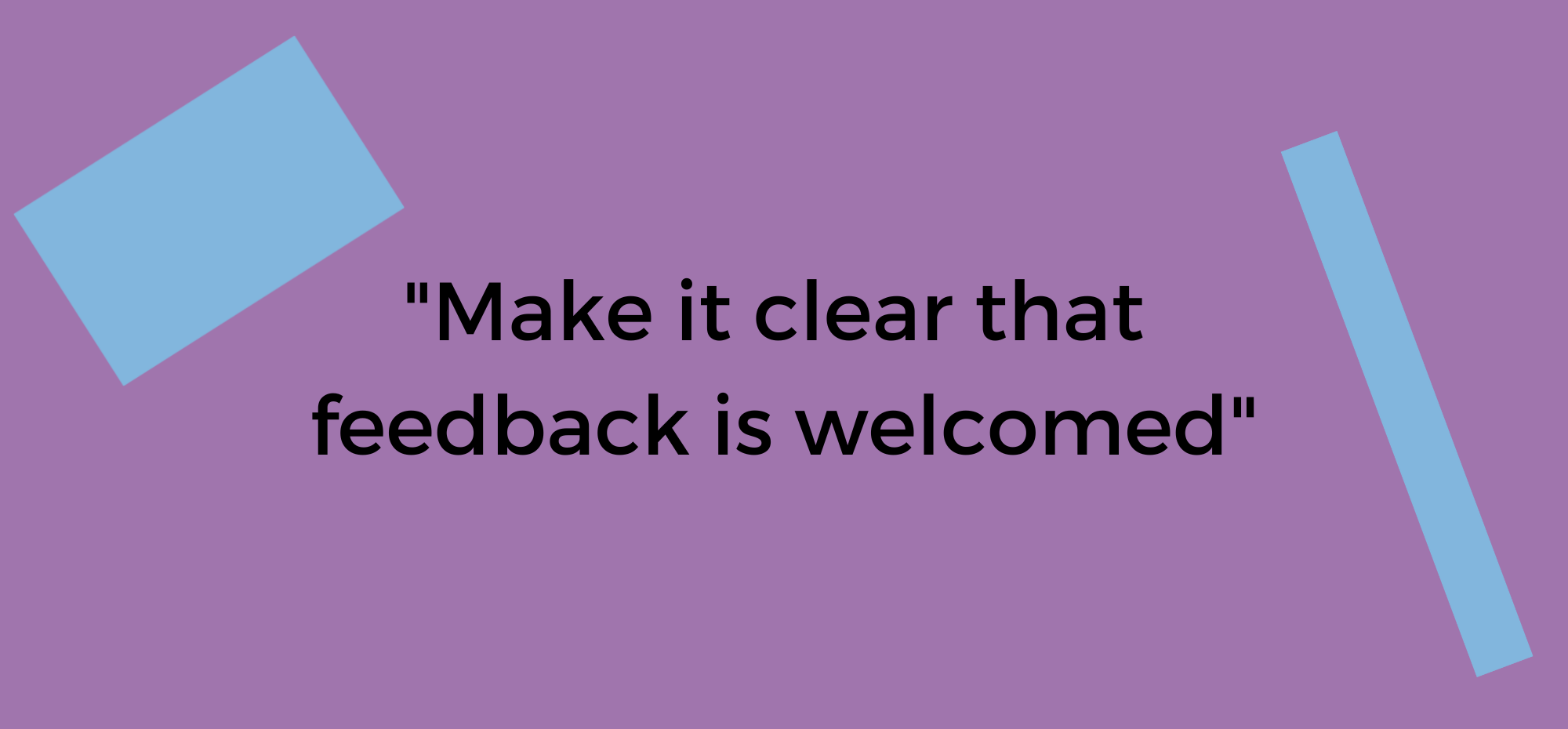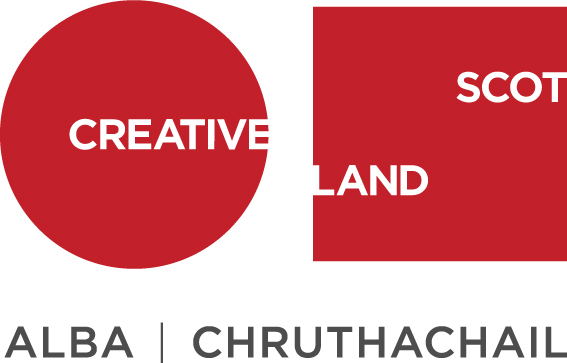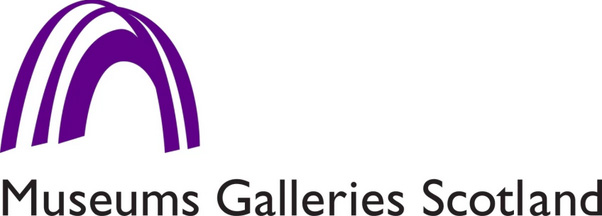Aims and Reflections
 Questions for you and your team
Questions for you and your team
- What are we trying to do with this commission?
- How, why and when will we measure what we are doing?
- Will we publicly share aims of the project or commission, and, if so, where?
The procedure and mechanisms for feedback should be considered and built into the process of the commission so that there are moments for reflection throughout the working period. Consider how best to set this up, including the option for anonymous commentary at regular points during the commission, and include the option for feedback at a much later stage after working together.
Artists and curators should not underestimate how influential it is to share feedback with one another. However, it is important not to assume that artists feel comfortable in raising concerns. Therefore it is important to make it clear that feedback is welcomed, and to ensure multiple avenues to receiving it are available, e.g. anonymous or via indirect channels.
Other voices and opinions should also be sought out and invited to provide feedback at appropriate stages during the process including those of the curator, organisation / gallery / museum, artist, audiences, and peers.
Reflection space for all participants
Reflection is part of the working process for University of Edinburgh. We strive to make every conversation an opportunity for reflection and open discussion. We hope artists are comfortable to raise concerns before, during and after working together and have also engaged with academic colleagues to undertake critical reflection on our behalf.
Reflection and Evaluation
- How will we build space for evaluation and feedback from all participants?
- How can reflection and evaluation build future practices and resources?
- Will evaluation outcomes enable us to develop checklists or templates for future projects?
Evaluation methodology and timescale
Consider the best processes and methods for your organisation. Feedback can take many forms: conversation, email, formal reviews. Listed below are some ways that you might capture the experiences of all those involved along the way.
- Visually recorded responses to the artwork e.g. watching audience interaction
- Artist feedback at points during the process
- Audience feedback – surveys, in-person group reviews
- Peer review panel
- Commissioning organisation feedback
- Funder feedback
- Colleague feedback
It is helpful to factor in the evaluation points for your commission process at the start of the journey and consider having regular check ins or reappraisal points.
Timelines for feedback and reflection on an artwork will inevitably vary. While reflections and learning on a project may be immediate, it is important to remember that some artworks need months and years to bed-in before learnings are revealed, especially when the project has taken significant time to develop. In the case of working with collections, this feels particularly important to underline.
To keep track of, share, and build on, learning and reflection, a checklist was developed to signal priorities and timescales for commissions. These can be helpful resources to outline methodologies because they have been tailored to the organisation, and easily shared.
This is a live toolkit. Please help us to develop and improve it by leaving comments in our feedback form. Thank you.



